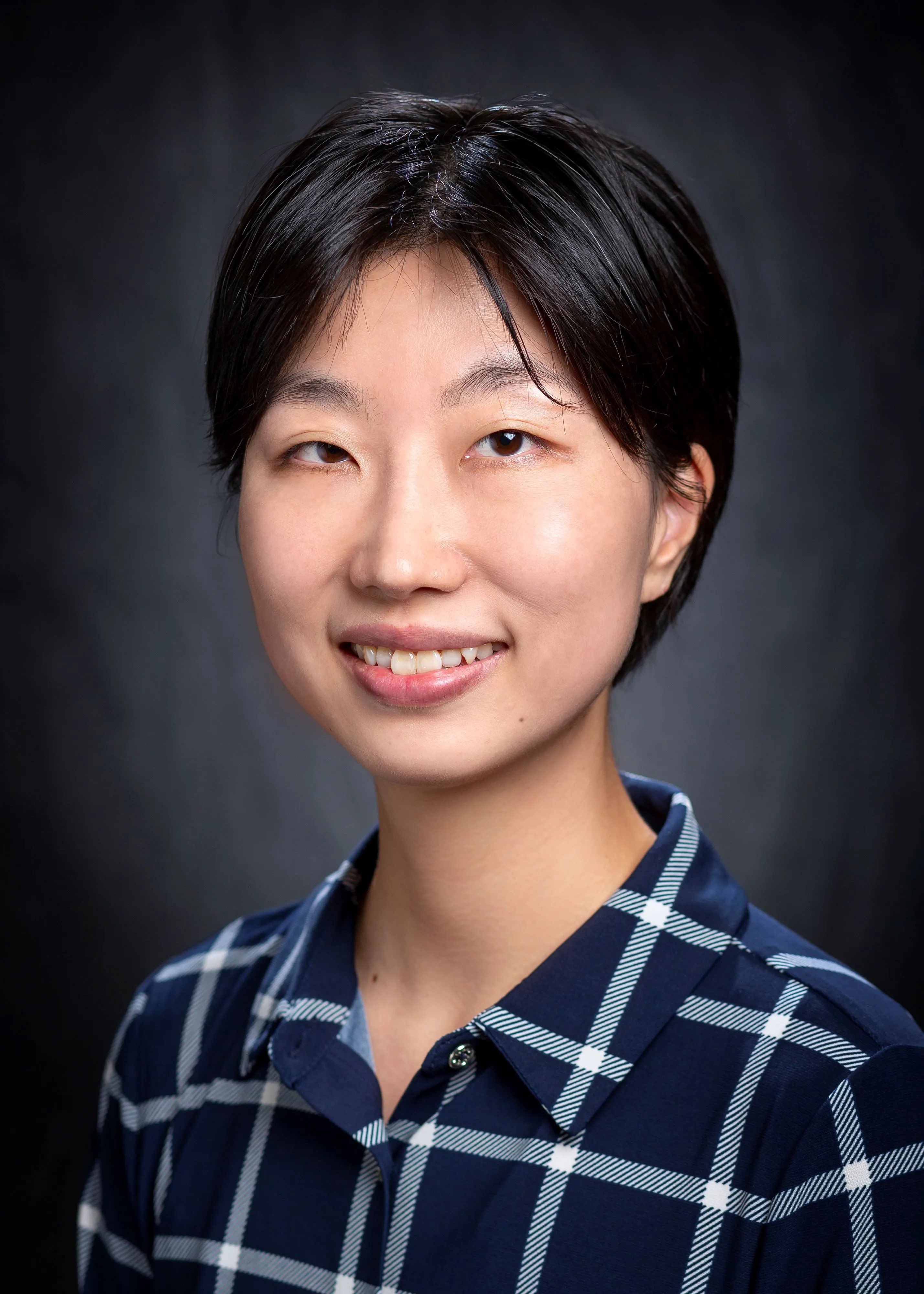Members
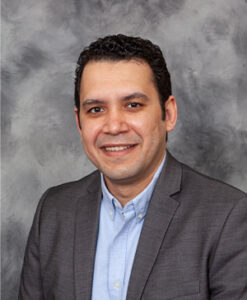
Ahmed Abdelmoneim, Ph.D.
Assistant Professor, Department of Comparative Biomedical Sciences
Email: aahmed10@lsu.edu
Our research program focuses on understanding how environmental contaminants and chemicals of concern may impact the early development of organisms, and on developing new technologies and techniques in an effort to advance the field of toxicology and address some of the challenges facing its community. In particular, we are interested in assessing impacts on the neuroendocrine system of organisms through investigations performed at different levels of biological organization. Our investigations primarily utilize zebrafish (Danio rerio) as a model organism and a wide range of tools such as molecular biology (PCR, real-time PCR, and RNAseq), transgenesis (tol2, CRISPR/Cas9), bright field and fluorescent microscopy, image analysis, analytical chemistry, and behavioral assays.

Melissa Beck, Ph.D.
Professor, Department of Psychology
Email: mbeck@lsu.edu
My research focuses on visual attention and memory and their impact the perception of a continuous visual world. An important task of the visual system is to filter the vast amount of available visual information so that important and task relevant information is processed more fully than unimportant and task irrelevant information. This process of filtering information is efficient and complex. My program of research is focused on examining (1) guidance of attention by stimulus factors, task goals, and memory (2) the effects of visual attention on memory, (3) and the role of metacognition in memory and attention.
Lab website: https://faculty.lsu.edu/becklab/
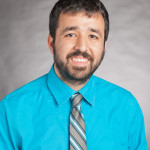
Matthew Calamia, Ph.D.
Assistant Professor, Department of Psychology
Email: mcalamia@lsu.edu
The primary aim of my research is to advance neuropsychological assessment through research on the measurement of cognitive abilities and emotional functioning. In my laboratory, we study a number of clinical conditions (e.g., ADHD, dementia, concussion/traumatic brain injury) all with the goal of improving our knowledge of tests and measures and their application to addressing clinically relevant problems. Current areas of focus include 1) comparing different approaches to measuring executive functioning and 2) examining the reliability and validity of novel methods of assessment (e.g., virtual reality).
Lab website: https://faculty.lsu.edu/mcalamia/
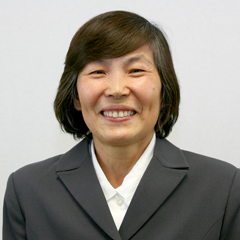
Jianhua Chen, Ph.D.
Associate Professor, Department of Computer Science and Engineering
Email: jianhua@csc.lsu.edu
My research aims at developing efficient data mining algorithms for knowledge discovery from neurocognitive data, to facilitate understanding the mechanisms and factors impacting brain activities and cognitive behaviors. The research will also develop software tools to assist neurocognitive clinicians in detection and treatment of mental illness.
Alex Cohen, Ph.D.
Professor, Department of Psychology
Email: acohen@lsu.edu
Alex Cohen is a licensed clinical psychologist who focuses on understanding and improving the lives of individuals with serious mental illnesses. His work focuses on adapting biobehavioral technologies, notably automated computerized analysis of natural behavior, for assessing a wide range of clinical issues. His research employs a broad range of technologies (e.g., ambulatory audio, video, natural language analysis) using both “big” and “small” data analytic approaches. He is involved with several large international consortiums devoted to developing rich genetic and phenotype-based biobanks.
Lab website: https://faculty.lsu.edu/asap/
 Christopher R. Cox, Ph.D.
Christopher R. Cox, Ph.D.
Assistant Professor, Department of Psychology
Email: chriscox@lsu.edu
Our knowledge of the world shapes our path through it: the decisions we make, the things we attend to and ignore, and what we think we know about an unfamiliar environment when we enter it for the first time. How this knowledge is acquired, and a brain-based account of what that knowledge is and how it is physically represented in the brain, are critical questions for cognitive psychology and cognitive neuroscience. My research applies a combination of behavioral research, computational modelling, machine learning, and neuroimaging to investigate the representational format of semantic knowledge.
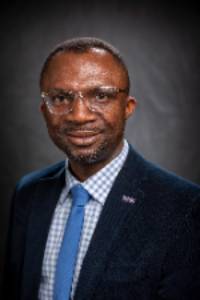
Oluwagbemiga D DadeMatthews, Ph.D.
Assistant Professor of Professional Practice, Department of Kinesiology
Email: gdadematthews@lsu.edu
Dr. Oluwagbemiga (‘Gbenga) DadeMatthews, an Assistant Professor of Professional Practice at the LSU School of Kinesiology, holds advanced degrees in Physiology, Public and International Affairs, and Medicine and Surgery from the University of Lagos and the Lagos State University College of Medicine, as well as a Ph.D. in Kinesiology from Auburn University. With a decade of experience in general medical practice and primary care sports medicine, his research focuses on performance optimization, exertional heat injuries, and health-related quality of life in tactical athletes. He has published extensively and is a member of several professional organizations, including the American College of Sports Medicine (ACSM), and the Human Anatomy and Physiology Society (HAPS). Additionally, Dr. DadeMatthews serves as a council member of the Society for Neuroscience Baton Rouge chapter.

Neila Donovan, Ph.D., CCC-SLP
Professor Emeritus, Department of Communication Sciences and Disorders
Email: ndonovan@lsu.edu
Dr. Donovan is a Professor Emertius in the Department of Communication Sciences and Disorders. Her research interests include developing treatments and treatment outcome measures for adults with acquired neurologic communication disorders, such as those with traumatic brain injury, stroke, dementia, and Parkinson’s disease; and translating evidence-based treatments into treatments clinicians can use in their day-to-day practice.
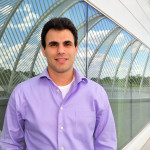 Thanos Gentimis, Ph.D.
Thanos Gentimis, Ph.D.
Assistant Professor, Department of Experimental Statistics
Email: tgentimis@agcenter.lsu.edu
My motto is “I enjoy solving interesting problems and helping others devise ways to solve theirs” and so far in my research the most interesting problems I have come across are related to human behavior. From how we create networks of collaborations (criteria, patterns, etc) to recognizing thoughts through fMRI images. As a data analyst, I am interested in any type of input, from structured questionnaires, to demographic data, to images and I can lend support to various types of research questions pertaining differences amongst behaviors, groups or treatments. I am fascinated by the impact studies in Human Behavior and Health have on solving daily problems while improving people’s lives, and I would be delighted to keep working in the field.
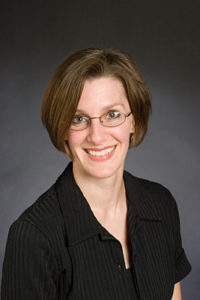
Emily Elliott, Ph.D.
Professor, Department of Psychology
Email: eelliott@lsu.edu
My research focus includes the areas of short-term memory and working memory, and also the interaction of attention with memory performance.
My interest in short-term memory stems from the close relationship between the items that a person is attending to and the ability to retain these items over short periods of time. To understand the interaction between memory and attention, it is helpful to be able to manipulate carefully what a person is attending to, or purposefully ignoring. In this way, the auditory modality is very useful for study. The direction of one’s attention in the visual modality can be easily modified by gaze, or even closing one’s eyes. This is not the case in the auditory modality. For this reason, much of my research includes auditory stimuli, which of course are ever-present in the natural environment. Additionally, I study the development of memory in children. I believe that studying children can be a valuable tool for understanding the origins of adult cognition.
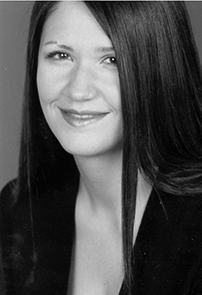
Serap Erincin, Ph.D.
Assistant Professor, Department of Communication Studies
Email: seraperincin@lsu.edu
Serap Erincin, an artist scholar and cultural and media critic from Istanbul, is assistant professor of Performance Studies and affiliated faculty in Women’s, Gender, and Sexuality Studies at Louisiana State University.
A writer, director, performer, and multimedia artist, she also has an extensive background in print and broadcast journalism having worked as a producer, editor, and reporter for major international networks such as CNBC and BBC World Service specializing in arts and politics. She worked with some of the most renowned companies and directors, both experimental and mainstream, in Istanbul and toured all over Turkey before moving first to London, UK, and then to New York where she continued to collaborate with theatre professionals and designed and developed original work while also pursuing her academic career. The plays she wrote and directed include Ofelias, Atrocity Boulevard, Connected, Inside “Out,” and Suppression of Absence. She was a resident artist at venues such as Catwalk Institute and the Borland Gallery. The installations in her recent solo exhibition Human Rights/Human Rites focus on the Syrian refugee crisis and the death penalty. Her multimedia installations such as Apex and Noah 0.2 degrees juxtapose social issues with narratives about endangered species. Her translations include Sylmarillon and other works by J.R.R. Tolkien and G.K. Chesterton. She curated several symposiums and the Neurohumanities Initiative and Salons.
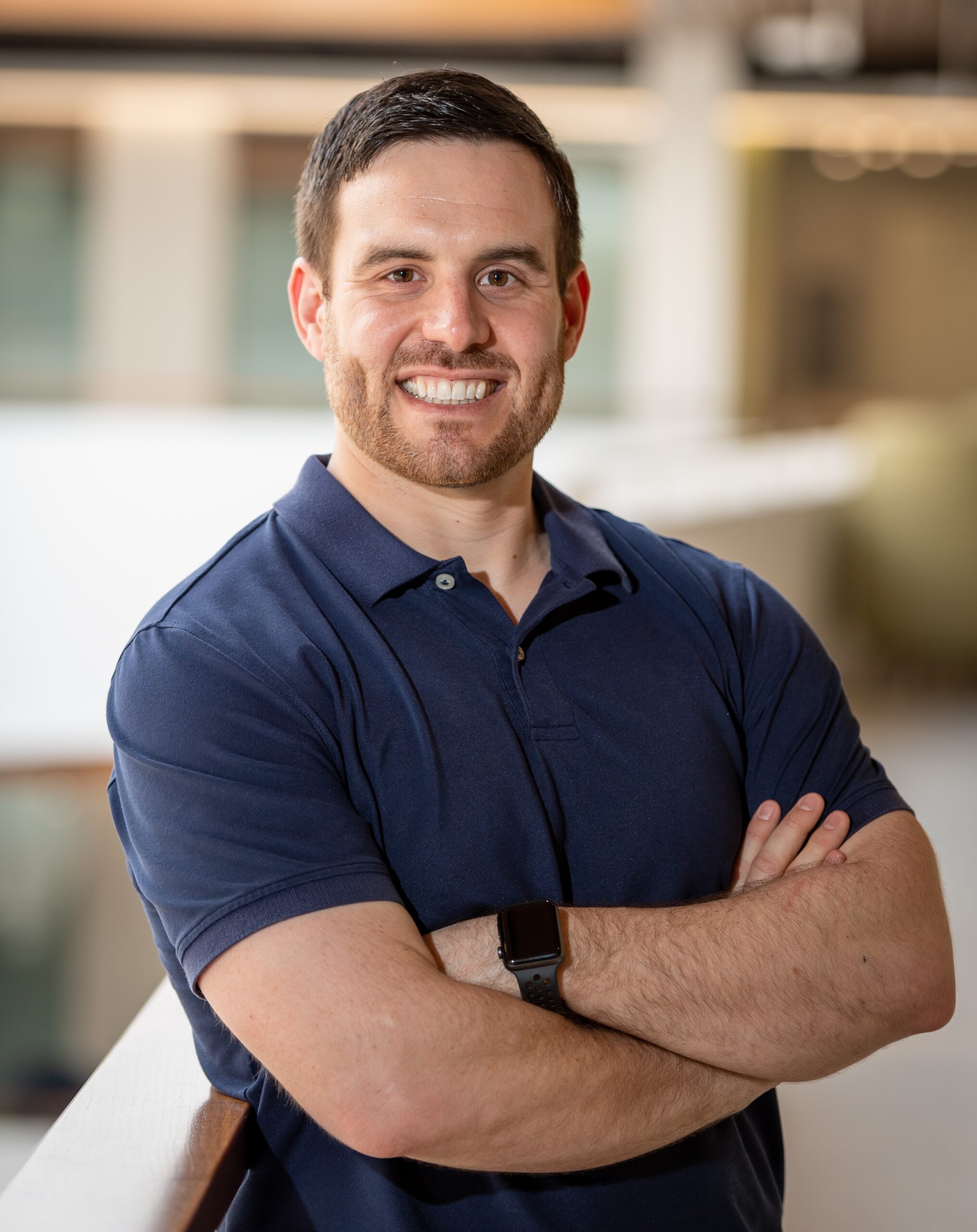 Nicholas E. Fears, Ph.D.
Nicholas E. Fears, Ph.D.
Assistant Professor, Department of Kinesiology
Email: nfears@lsu.edu
Nick Fears’s research focuses on the development of the dynamic relationships between motor, visual, and cognitive processes. He is interested in how these relations affect the performance of activities of daily living in neurodivergent populations (i.e., autism, developmental coordination disorder) from early childhood into adulthood. The goal of his research is to improve the lives of neurodivergent people by adapting their environments and providing support for them to achieve their goals. Dr. Fears uses a multi-faceted approach, integrating techniques from the fields of biomechanics, psychology, vision sciences, computer science, movement science, and rehabilitation sciences. He uses traditional and markerless motion-capture, accelerometers, mobile eye-tracking, and standardized clinical assessments in laboratory and community settings to examine differences in visuomotor skills, cognitive abilities, and adaptive behavior.
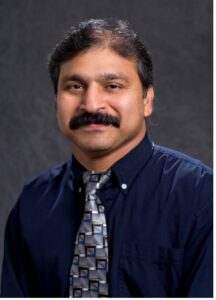
Joseph Francis, Ph.D.
Professor, Department of Comparative Biomedical Science
Email: jfrancis@lsu.edu
Francis’ research focuses on inflammation in relation to human diseases, using animal models to gain a better understanding of chronic diseases such as heart failure, hypertension, metabolic syndrome, and post-traumatic stress disorder. Francis has been awarded over $10 million dollars in grant funding during his 18 years at LSU from a variety of funding organizations including the National Institutes of Health, the U.S. Department of Defense, the American Heart Association, and the US High Bush Blueberry Council.
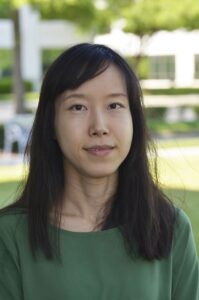
Juhee Haam, Ph.D.
Assistant Professor, Department of Biological Sciences
Email: jhaam1@lsu.edu
My research seeks to understand the neural circuit basis of memory formation. The
memory formation process is not a single-stage process that stores sensory inputs
in one location. Rather, it is mediated by multi-stage processes (i.e. encoding and
consolidation) that involve communications between different brain regions. Encoding
is described as forming quick temporary memories in the hippocampus, which inherits
information from the neocortex that initially receives sensory inputs. Consolidation
refers to the process of forming long-term memories in the neocortex, which receives
recently encoded hippocampal information. As these two memory stages operate in mutually
exclusive modes (i.e. encoding during waking and consolidation during sleep) and are
differentially modulated by external signals, studying these distinct memory formation
processes is crucial in order to fully understand the mechanism of memory formation.
Using a variety of in vitro and in vivo recording approaches such as fiber photometry,
electrophysiology, and miniature microscopy, I aim to investigate neural circuits
responsible for memory consolidation and how these circuits are altered in disrupted
metabolism and dementia. In addition, I use optogenetics and chemogenetics along with
behavioral testing to assess the functionality of a specific memory circuit.
Lab website: https://www.haamlab.org

Jan Hondzinski, Ph.D.
Professor, Department of Kinesiology
Email: jhondz1@lsu.edu
Dr. Hondzinski’s research interests involve the study of motor control and sensorimotor integration in tasks requiring whole body movements. She explores the control mechanisms during movements involving the entire body. Studies involve the effects of gaze direction, sensory alterations or neurodegeneration on movement of the body or body segments. The results of the experiments identify coordination strategies of “normal” subjects and contribute to the basic understanding of sensory use and movement variations effects for movement control. Such information may also be used to improve training regimes or expand rehabilitation strategies for individuals with deficits due to normal aging or pathology, such as vestibular loss, peripheral neuropathy, or Parkinson’s disease.
Dr. Hondzinski came to LSU after receiving her PhD in Exercise Science with specialization in Motor Control and Biomechanics and completing 2 years post-doctoral training in Motor Control. She was promoted to Professor in 2020 and is currently the Motor Behavior Area Coordinator for the Department of Kinesiology.
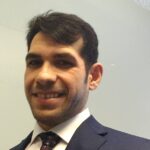
Karim Johari, Ph.D.
Assistant Professor, Department of Communication Sciences & Disorders
Email: karimjohari@lsu.edu
Karim Johari is an assistant professor in the department of communication sciences and disorders. He directs Human Neurophysiology and Neuromodulation Lab. He utilizes invasive ( ECog ), non-invasive neurophysiology (EEG), HD-tDCS/tACS and computational modeling to investigate neural correlates of speech production and limb movement, and the interaction between the motor system and language ( motor-language coupling). The current projects in his lab are the validation of HD-tACS for improvement of speech and limb motor control in healthy older adults and individuals with neurodegenerative conditions such as Parkinson’s disease.
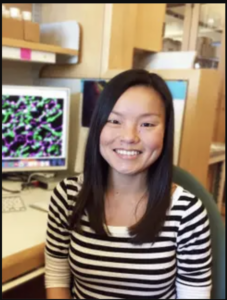
Assistant Professor, Department of Communication Sciences & Disorders
Email: johnsona@lsu.edu
My lab is exploring links between the genetic and molecular causes of age-related degenerative diseases, such as ALS, Alzheimer’s and Parkinson’s disease. A common hallmark of almost all degenerative diseases is the progressive accumulation of protein aggregates. Autophagy-lysosome mediated degradation is the major pathway that clears aggregates from the cytoplasm and autophagy defects are associated with many degenerative diseases. Using CRISPR gene editing techniques, we are introducing disease-causing mutations into the endogenous fruit fly genome and using a combination of genetic, biochemical and microscopy methods to study how the autophagy-lysosome pathway is affected in various cell types (e.g. neurons, glia and muscles) and how these molecular defects drive progressive degenerative phenotypes in the whole organism.
Assistant Professor, School of Kinesiology
Email: hkkim@lsu.edu
Dr. Kim’s research interests are the application of musculoskeletal modeling and medical image processing to understand the underlying mechanisms involved in musculoskeletal diseases and balance impairments. The majority of her research output is in the field of musculoskeletal biomechanics.
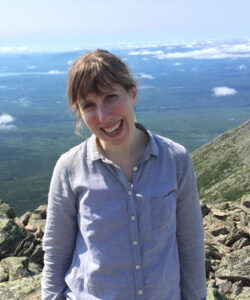
Christine Lattin, Ph.D.
Assistant Professor, Department of Biological Sciences
Email: christinelattin@lsu.edu
The focus of my lab’s research is to understand how different neurotransmitters and hormones help wild animals successfully cope with challenges from predators to disease. The hormone and neurotransmitter pathways we study are very similar in in all vertebrates from fish to birds to mammals, so sparrow and starling research can help us understand how these systems work in humans and other animals. Our current research has three main areas of focus: 1) the neurobiology of neophobia, 2) the effects of climate change on sibling competition, and 3) interactions between the immune system and the stress response.
Lab website: https://thelattinlab.com/
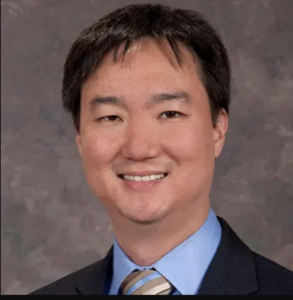
Charles Lee, Ph.D.
Professor of Cognitive and Neural Systems, Department of Comparative Biomedical Sciences
Email: cclee@lsu.edu
My laboratory derives neural principles governing the sensory and cognitive functions of the brain using the central auditory system as a model. We investigate the neural circuits and the physiological properties of sensory synapses in the midbrain, thalamus, and cortex by recording electrophysiologically from neurons in response to pharmacological activation, electrical stimulation, optogenetic manipulation, or photostimulation by uncaging of glutamate. Morphological correlates are sought using neuroanatomical methods, such as anterograde and retrograde tract-tracing, cell-type specific viral tracers, and intracellular filling of recorded neurons. From our studies, we wish to elucidate the emergent properties of neuronal ensembles and their roles in regulating behavior.
Our research also addresses how alterations to these central sensory pathways manifest in neurodevelopmental and neurodegenerative disorders, such as autism spectrum disorder, schizophrenia, and Alzheimer’s disease. Our long-term objectives are to relate aberrant neural circuit organization with the core behavioral deficits observed in these conditions. We expect that this research will illuminate the fundamental roles of these neural networks and their potential as therapeutic targets for these conditions.
 Eileen Haebig, Ph.D., CCC-SLP
Eileen Haebig, Ph.D., CCC-SLP
Associate Professor, Department of Communication Sciences and Disorders
Email: ehaebig1@lsu.edu
Eileen Haebig’s research aims to understand how children learn language and process the language that they know. She is particularly interested in language processing and learning in children with neurodevelopmental disorders, such as children with developmental language disorder/specific language impairment and children with autism spectrum disorder. Her research highlights areas of overlap and distinction in language phenotypes across populations with neurodevelopmental disorders and across different points in development. Dr. Haebig uses a multi-level approach that incorporated behavioral coding, eye tracking, language sample analysis, and event related brain potentials (ERPs) to more fully examine language learning and processing in children with neurodevelopmental disorders.
Lab website: https://faculty.lsu.edu/netlab/
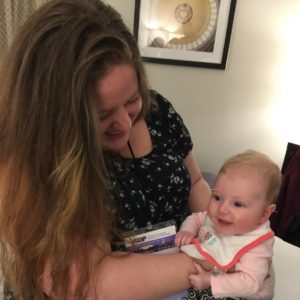
Emily Marcinowski, Ph.D.
Assistant Professor, Department of Kinesiology
Email: emilym@lsu.edu
Emily Marcinowski is an Assistant Professor in the Department of Kinesiology and the director of the Understanding Play lab. Dr. Marcinowski’s research interests primarily center on how motor skills and asymmetries affect the development of play, language, and cognition in early childhood, particularly in children younger than 2 years. Specific projects include the impact of emerging independent sitting and locomotion on manipulative play, hand preferences on the development of object construction and language, and how parents support motor development in their infants. She also has interest in finding unique methods for studying and understanding development, including discovering new ways to describe temporal change besides age.
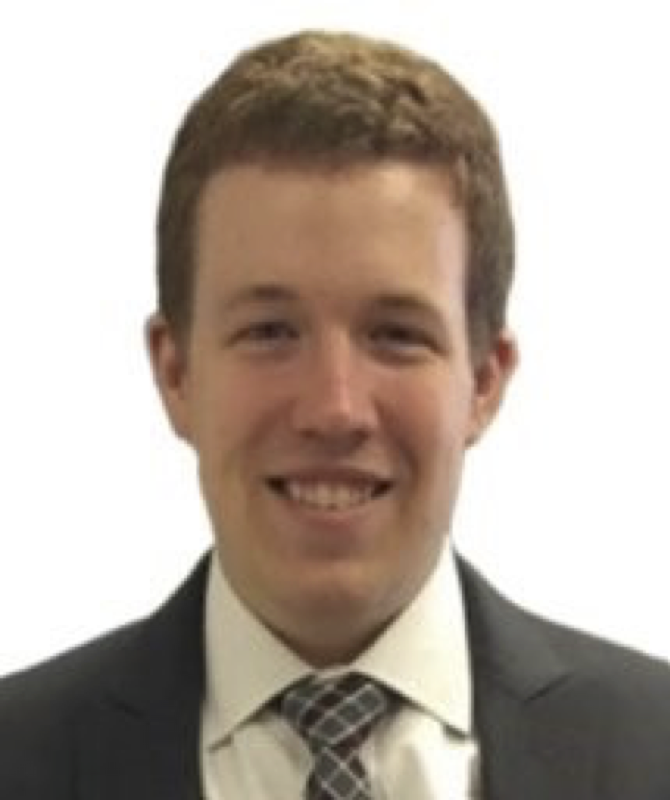
Chris Marvel, Ph.D.
Assistant Profssor, Department of Mechanical and Industrial Engineering
Email: cmarvel@lsu.edu
As a materials scientist, I am always seeking to find new or alternative methods to
process materials and improve their properties for new applications. The focus of
my research is to identify and control atomic-scale mechanisms that govern microstructure-property
relationships in metals and ceramics, while my main approach is to apply advanced
characterization techniques, particularly aberration-corrected scanning transmission
electron microscopy, to understand how atomic structure and composition of atomic
interfaces and/or nanoscale phases impact bulk material behavior. Meanwhile, the learning
curves for using advanced electron microscopes is becoming more technically driven,
so my other research interest is developing and employing more human-centric environments,
potentially via AR/VR applications, that assist new and expert users operate scientific
equipme

Bijoyaa Mohapatra, Ph.D., CCC-SLP
Assistant Professor, Department of Communication Sciences and Disorders
Email: bmohap@lsu.edu

Alexander Murashov Ph.D.
Professor, Department of Comparative Biomedical Sciences
Email: amurashov@lsu.edu

Wayne Newhauser, Ph.D.
Dr. Charles M. Smith Chair of Medical Physics
Email: newhauser@lsu.edu
Dr. Newhauser’s research team focuses on cancer prevention and cancer survivorship.
Specifically, we seek to better understand the risks of treatment-related health problems
faced by cancer survivors. The long term goal is to provide an enhanced based of evidence
for making clinical decisions (e.g., selection of radiation treatment modality) and
health care policy decisions (rational allocation of scarce health care resources).
Our recent research has focused on children and young adults, e.g., with tumors of
the central nervous system and Hodgkin Disease. We have also studied treatments for
cancer of the prostate, liver, lung, and other sites. Our research examines advanced
radiotherapies, such as intensity modulated proton and photon therapies, as well as
conventional photon therapy. This research is trans-disciplinary, including medical
physics, software and nuclear engineering, high performance computing, statistics,
cancer prevention and epidemiology, and oncology.
Janet Norris, Ph.D., CCC-SLP
Professor, Department of Communication Sciences and Disorders
Email: jnorris@lsu.edu
Jan Norris has worked in the public schools as both a speech-language pathologist
and a special education teacher, and consulted extensively with classroom teachers
and special service providers, with over 45 national and 75 state presentations. She
has received ASHA’s Clinical Achievement Award twice – once in the state of Nebraska
and once in Louisiana, and is a Fellow of ASHA. She has developed specific assessment
and intervention strategies to facilitate learning based on Whole Language principles,
and has published over 40 articles and book chapters related to preschool and school-aged
students. In 1993 she published a book, written with Dr. Paul Hoffman entitled Whole
Language Intervention for School-Aged Children (Singular Press) and in 1995 published
a year-long integrated curriculum and manual for implementing inclusion in kindergarten
entitled Storybook-centered Themes, which is in use in sites across the state as a
result of a grant. Currently Dr. Norris is developing materials to improve reading
and writing skills, as well as conducting workshops to teachers using distance learning
technology. she directs the Language Intervention Laboratory within the Department.
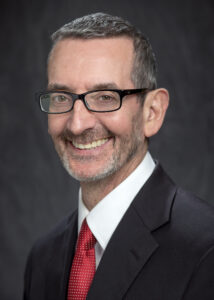 John L. Protevi, Ph.D.
John L. Protevi, Ph.D.
Phyllis M Taylor Professor of French Studies
Email: protevi@lsu.edu
I am a philosopher, among whose interests are the “enactive” and “embodied mind” schools
in what we call the discipline of Philosophy of Mind, as well as theories of human
cognitive and moral evolution. Course materials and research papers are located here: http://www.protevi.com/john/index.html
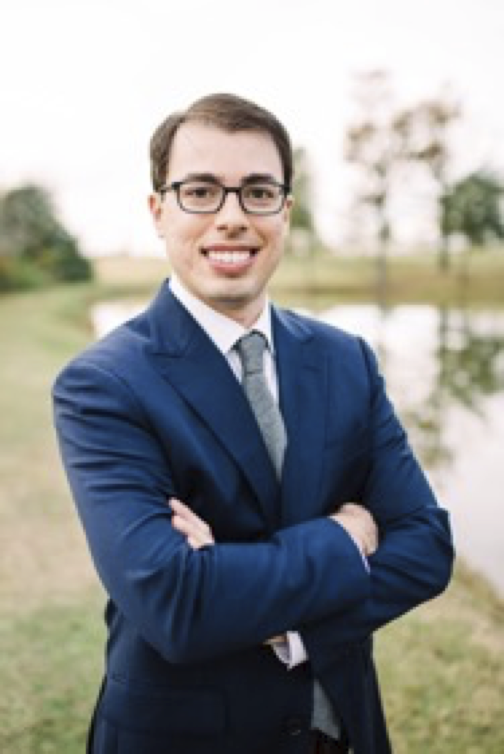 David J. Saccardi, Ph.D.
David J. Saccardi, Ph.D.
Assistant Professor, Department of Music
Email: dsaccardi@lsu.edu
David Saccardi is an Assistant Professor of Music Education and Co-Director of the
Translation Research in Music Group. He is the President-Elect of the Louisiana chapter
of the American String Teachers Association and a consultant for Kids Orchestra, a
program that provides music education and social-emotional skills support for elementary
school students in Baton Rouge. His research interests lie at the intersection of
current research in psychology and neuroscience and how it supports music teaching
and learning. Using experimental designs and quantitative methods, his current projects
involve peer-assisted learning strategies in music classrooms, music memory and cognition
among expert and novice musicians, and arts policy in the state of Louisiana.
Lab website: http://faculty.lsu.edu/trmg/
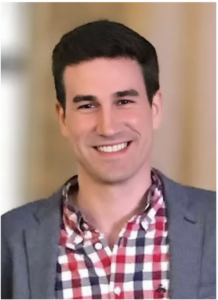 Jason Scimeca, Ph.D.
Jason Scimeca, Ph.D.
Assistant Professor, Department of Psychology
Email: jscimeca@lsu.edu
My research is focused on memory, executive functions, and cognitive control. Cognitive control is the ability to flexibly guide behavior based on our prior experiences, the current context, and our long-term goals – but this ability has a severely limited capacity. Our research addresses questions such as: How do distributed brain networks support flexible cognitive control and working memory? What is the neural basis of cognitive capacity limits? And why are cognitive control deficits so pervasive in neuropsychiatric and developmental disorders? To answer these questions, we combine computational models of behavior, neuroimaging (fMRI), and non-invasive brain stimulation (TMS).
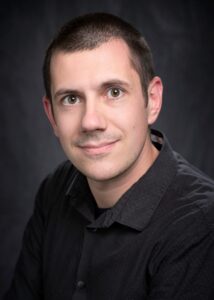 Guillaume Spielmann, Ph.D.
Guillaume Spielmann, Ph.D.
Associate Professor, Department of Kinesiology
Email: gspielmann@lsu.edu

Heather Lucas, Ph.D.
Assistant Professor, Department of Psychology
Email: hlucas2@lsu.edu
My research focuses broadly on the cognitive neuroscience human memory. In particular, I investigate how people manage the limits of their own memory systems by making decisions about when and how to interact with information they are attempting to learn. I approach this topic by using a number of converging methods, including EEG/ERPs, eye tracking, and the study of certain patient populations with memory difficulties. I also include both younger and older adults in my research to examine how neural, cognitive, and social facets of aging combine to impact the way individuals approach tasks involving learning and memory.
Lab website: https://faculty.lsu.edu/bamlab/

Janna Oetting, Ph.D., CCC-SLP
Professor, Department of Communication Sciences and Disorders
Email: cdjanna@lsu.edu
Janna Oetting seeks to understand human communication, with a specific focus on communication breakdown in children and the ways various professional organizations screen, assess, and treat communication disorders in children. Her scholarly expertise is in the study of children’s acquisition of language and literacy in the context of different English dialects, including but not limited to General American English, African American English, and Southern White English. In addition, she studies the language and literacy deficits of children with Specific Language Impairment, a disorder that affects ~7% of kindergartners, and other less prevalent developmental language disorders, such as Autism. Her work has been funded by NIH, the US Department of Education, and other external agencies.
Lab website: https://faculty.lsu.edu/lddlab/

Kathleen Searles, Ph.D.
Assistant Professor, Departments of Mass Communication and Political Science
Email: ksearles@lsu.edu
Assistant Professor Kathleen Searles (joint appointment in the Manship School of Mass Communication and the Department of Political Science) draws on psychology and communication to solve political problems. Recently this focus has resulted in a book manuscript which investigates the effects of mobile devices on information processing. Previously her work using eye-tracking technology influenced the advertising landscape of the 2016 presidential election. To MIND she brings an interest in attention and emotion as it pertains to communication.
Website: kathleensearles.com
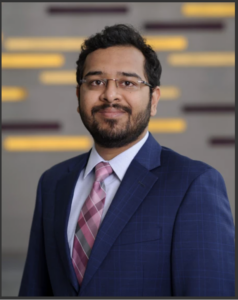 Kshitiz Upadhyay, Ph.D.
Kshitiz Upadhyay, Ph.D.
Assistant Professor, Department of Mechanical and Industrial Engineering
Email: kshitiz@lsu.edu
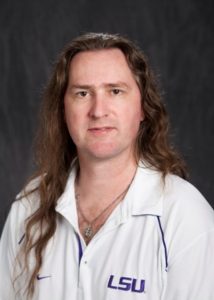 Arend W. A. Van Gemmert, Ph.D.
Arend W. A. Van Gemmert, Ph.D.
Associate Professor, Department of Kinesiology
Email: gemmert@lsu.edu
My research interests centers around the control of fine motor tasks, such as handwriting, drawing, pointing, and reach-to-grasp movements. His research can be divided into three closely related focus areas: (1) This area of studies focuses on the mechanisms responsible for movement control during increased demands due to stress and mental load, (2) This area of projects focuses on the changes in fine movement control due to physiologic deterioration of the movement system as result of advanced age and neurological disease, (3) The final area of interest assembles knowledge gained in the areas described in 1 and 2 to understand challenges to (re)learn fine motor tasks under strenuous conditions as a consequence of stress, mental load, advanced age, and neurological disease.
Website: http://www.vangemmert.com/fmcl/
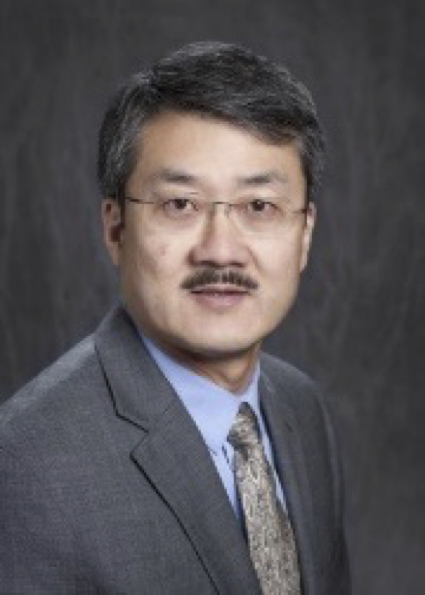 Yimin Zhu, Ph.D.
Yimin Zhu, Ph.D.
Professor, Holder of the Pulte Homes Endowed Professorship in Construction Management,
Bert S. Turner Department of Construction Management
Email: yiminzhu@lsu.edu
I am a professor in the Bert S. Turner Department of Construction Management. My research is in computing for built environment design and engineering. In particular, my research focuses on fusing human experiences into building performance analysis using emerging technologies such as immersive virtual environments, wearable sensors, and digital twins. I use psychological and physiological measures to understand the validity of technologies for studying building occupants’ comfort, stress, and behaviors. I am also interested in understanding the impact of cognitive processing on design decision-making in computer-mediated environments.
 Paul Soto, Ph.D.
Paul Soto, Ph.D.
Assistant Professor, Department of Psychology
Email: soto1@lsu.edu
My research interests are in (1) the use of laboratory models of psychiatric diseases and symptoms for the evaluation of potential therapeutic approaches, (2) the use of drugs and genetically engineered animals to identify the neurobiological bases of cognition and behavioral economic decision making, and (3) the investigation of short- and long-term effects of psychiatric medications. Current research projects involve investigation of the role of dopamine D2-like receptors in reinforcement processes, assessment of cognitive decline in transgenic mouse models of Alzheimer’s Disease-associated neuropathology, and long-term effects of early-life exposure to psychiatric medications.
Website: https://faculty.lsu.edu/sotolab/
